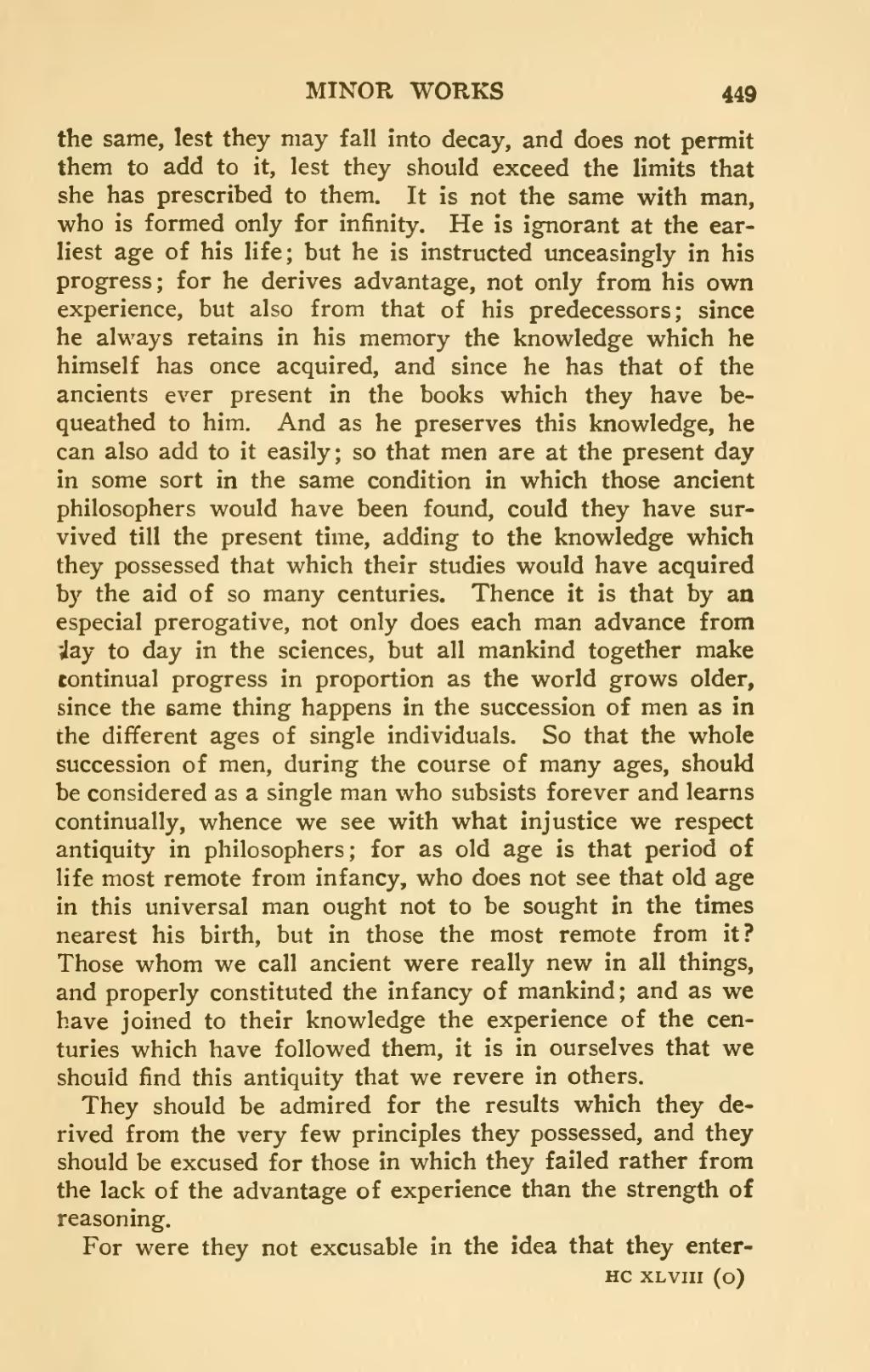the same, lest they may fall into decay, and does not permit them to add to it, lest they should exceed the limits that she has prescribed to them. It is not the same with man, who is formed only for infinity. He is ignorant at the earliest age of his life; but he is instructed unceasingly in his progress; for he derives advantage, not only from his own experience, but also from that of his predecessors; since he always retains in his memory the knowledge which he himself has once acquired, and since he has that of the ancients ever present in the books which they have bequeathed to him. And as he preserves this knowledge, he can also add to it easily; so that men are at the present day in some sort in the same condition in which those ancient philosophers would have been found, could they have survived till the present time, adding to the knowledge which they possessed that which their studies would have acquired by the aid of so many centuries. Thence it is that by an especial prerogative, not only does each man advance from day to day in the sciences, but all mankind together make continual progress in proportion as the world grows older, since the same thing happens in the succession of men as in the different ages of single individuals. So that the whole succession of men, during the course of many ages, should be considered as a single man who subsists forever and learns continually, whence we see with what injustice we respect antiquity in philosophers; for as old age is that period of life most remote from infancy, who does not see that old age in this universal man ought not to be sought in the times nearest his birth, but in those the most remote from it? Those whom we call ancient were really new in all things, and properly constituted the infancy of mankind; and as we have joined to their knowledge the experience of the centuries which have followed them, it is in ourselves that we should find this antiquity that we revere in others.
They should be admired for the results which they derived from the very few principles they possessed, and they should be excused for those in which they failed rather from the lack of the advantage of experience than the strength of reasoning.
For were they not excusable in the idea that they enter-
hc xlviii (o)
